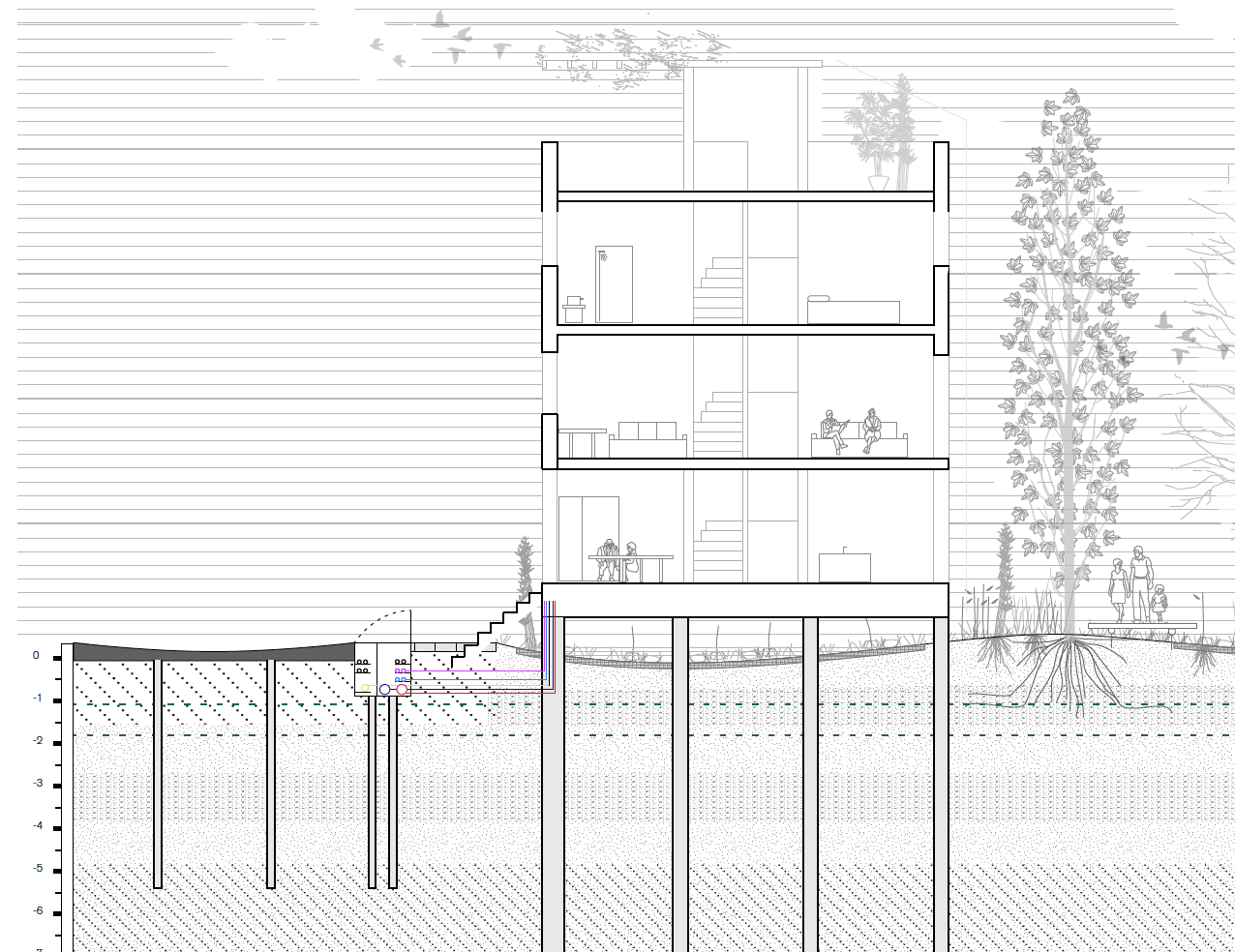Intelligent SUBsurface Quality
Intelligent use of subsurface infrastructure for surface quality
The subsurface is a technical space, the “engine room of the city,” that incorporates the vital functions of water and energy supply, communication systems, sewers and drainage. Natural systems too – crucial for stable, dry, cool and nature inclusive cities – are also largely dependent on the quality of the subsoil. The subsurface is critical in an era of climate and demographic changes, the energy transition and economic uncertainty and constraints. However, due to the domain’s current segregation and a weak urban design and planning connection, crucial design potential, benefits and innovations, remain unexploited.

This project developed knowledge brokerage tools and design principles to enable understanding and design of the surface and subsurface as one united space. Knowledge brokerage tools are Technical Profile, Technical Projection and Provocative Design, all which enable the inclusion of subsurface data into the design process.
Design principles were developed from the perspective of healthy soils and circularity. The condition of urban soils is crucial to liveability and to the successful achievement of necessary climate and energy actions. In exploring the urban design process spatial strategies responding to global trends were tested on three typical Dutch urban typologies – neighbourhoods created in the 90s, 70s and 50s in connection with the highway. This highway zone can be activated through changing patterns of mobility and new technologies to enhance urban resilience, quality and liveability on a larger scale. New technologies for example for wastewater treatment and renewable energy production on the highway utilizing wind and sun inform new urban designs and programs for development. In this study we chose the topics of (waste) water, energy and new program and in relation to electric cars and automated driving also the cleaning of the ‘old’ car use around the highway should be part of the development. For each urban typology the main characteristics and potentials are defined in relation to the topics of (waste)water, energy, remediation and new program.
As a next step, these designs where re-considered with the intention to introduce concepts of circularity and healthy soil. In the developed design principles, all materials coming from buildings and changes in the public space were re-used within the design parameter. The current degraded and pollution conditions of urban soils were remediated by four concepts that produced fundamentally different design of urban patterns and also leads to a fundamentally different maintenance of urban public space, as well as a different way of dealing with subsidence. This will be less constructed and will anticipate the dynamics of the soil and the performance of the ecological systems of the original landscape more. In other words, ecosystem participation.
Next to the design principles the research produced a six-step design approach aimed at integrating challenges of climate change, energy transition, new mobility while at the same time reduce and re-use of materials and using healthy soil as central perspective. This combination is done by integrating the material flow analysis in the design process which functions as an assessment (material flow design assessment) to evaluate and to improve the designs.
Facts
| Funders: | DIMI Delta Research Initiative Mobility and Infrastructure Municipality Rotterdam Municipality Leiden Municipality Zaandam |
| Overall budget: | € 133.355 |
| Grant amount: | € 133.355 Contribution to TU Delft: € 133.355 |
| Role TU Delft: | Lead partner |
| Project duration: | January 2016 - December 2019 |
| TU Delft researchers: | Dr. Fransje Hooimeijer Dr.Ir. Taneha Kuzniecow Bacchin Ir. Filippo LaFleur |
Project partners
Municipality Rotterdam, Municipality Leiden, Municipality Zaandam, Housing Corporation Woonstad, UN Lab